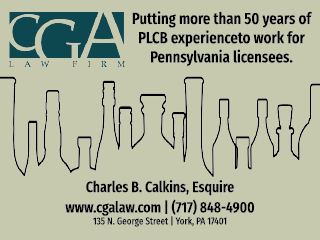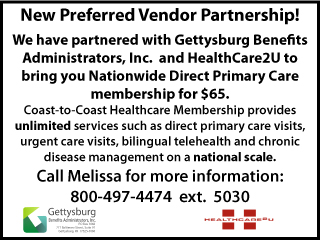PLBTA Tip: Mask Confusion
The requirement that customers and employees wear facemasks in restaurants and retail food establishments was initially set forth in Pennsylvania’s May 2020 restaurant industry guidance, and is consistent with CDC guidance stating that wearing masks in public places will help reduce the spread of COVID-19.
While there is substantial support for masks as a tool for combating the spread of the COVID-19, such support is not universal. Many individuals and businesses are opposed to masks, citing individual rights, medical restrictions, and a variety of other reasons for their refusal to wear masks.
This resistance places business owners in a difficult position, as they struggle to balance their legal and licensing obligations with customer resistance, complaints, and boycotts.
These efforts are complicated by conflicting and often inaccurate information on social media, which has created significant confusion and given rise to many questions regarding how businesses should respond to mask complaints and refusals, including:
Q: Can I as a business owner require customers and employees to wear masks in my restaurant or food establishment?
A: Yes, all businesses in the retail food services industry are required to adhere to state guidance. Those who do not comply risk penalties, including suspension or revocation of licenses.
Q: What if a customer tells me that he/she cannot be forced to wear a mask because it violates his/her constitutional rights?
A: Requiring patrons and employees to wear a mask is a public safety measure that does not infringe on any individual’s constitutional rights and does not violate any of the civil rights and liberties guaranteed by the Bill of Rights.
Q: I have been told that I cannot ask any patron or employee who is not wearing a mask if they have a medical condition that prevents them from doing so because it will violate HIPAA.
A: The Health Insurance Portability and Accountability Act (HIPAA) applies to protected health information in the possession of a healthcare provider and other very limited circumstances. HIPAA does not apply to business owners in this context.
Q: Doesn’t the ADA prevent me from requiring customers or employees to wear a mask?
A: The Americans with Disabilities Act (ADA) applies to most businesses, and may be implicated in some instances. There is substantial confusion, however, about the extent to which the ADA allows customers and/or employees to simply refuse to wear masks.
Title III of the ADA prohibits discrimination on the basis of disability in places of public accommodation, such as restaurants and other food service establishments. Title I prohibits discrimination on the basis of disability in the employment context.
In both cases, businesses must consider requests for reasonable accommodation, and are legally permitted to request medical information to support such requests. For customers, businesses may make a verbal inquiry regarding the reason the person cannot wear a mask – but generally should not require written medical documentation. For employees, employers may (and in most cases should) require written medical certification supporting the need for accommodation.
It is important to note, however, that while a business must consider a valid request, it is not required to grant the specific accommodation requested where a viable alternative exists.
Given the risks posed by noncompliance with mask mandates, businesses may wish to consider offering alternatives to customers who cannot wear a mask for medical reasons, including offering delivery, curbside pickup, or face shields. For employees, an employer may offer accommodations such as face shields, remote work, or other workplace modifications that separate them from others.
While business owners anxiously await a return to relative normalcy and a day when mask requirements are a thing of the past, those facing “mask confusion” should be sure to separate fact from fiction and evaluate each request based on facts and the appropriate applicable law.
This article was written by Christine Nentwig of CGA Law Firm, a preferred vendor of the Pennsylvania Licensed Beverage and Tavern Association. CGA Law Firm has an experienced team of PLCB attorneys available to licensees throughout Pennsylvania to answer questions regarding the new requirements and license suspension process, discuss the steps necessary to ensure compliance, and provide representation and counsel in resolving PLCB suspensions and citations. To reach CGA Law Firm, call (717) 848-4900.
*Any opinion expressed in the article is not to be construed as legal advice to any individual or entity.
The above story appears in the December 2020 edition of our magazine, Pennsylvania Beverage Media.







